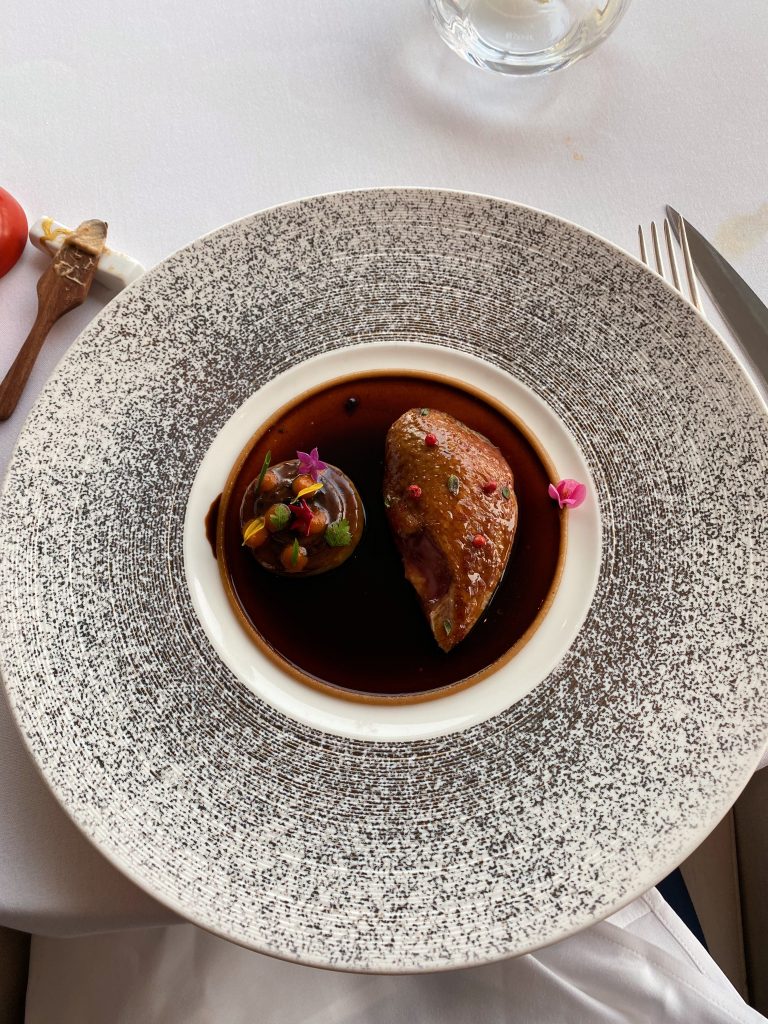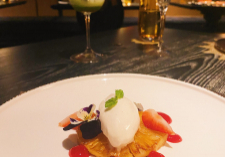Unleash Your Inner Monet: Crafting Edible Art With Vibrant Flower Garnishes
Calling all food artists and Instagram influencers! Are you ready to transform ordinary dishes into extraordinary edible art with the magic of flower power? We’re diving into the dazzling world of edible flower garnishing. From flawless floral selection to artful plating techniques, this complete guide will show you how to spotlight nature’s candy and impress all who behold your creations.
Let’s do this!
Build Your Edible Bouquet: Pick the Prettiest Petals
The flower selection process is crucial for creating vibrant, appetizing garnishes. Begin by visiting local farmer’s markets and specialty grocers to scout the most vivid options labeled specifically for consumption.
Elegant Roses
Prized for their romantic scent and delicate flavor, rose petals shine in desserts, salads, drinks – you name it! Look for deeply hued petals and a fresh, prominent rose aroma. Remove the bitter white portions before using.
Playful Pansies
These cheery flowers flaunt a versatile sweet-tangy taste and wide color range, from sunny yellow to violet. Their mild flavor allows pansies to garnish anything from pastries to cocktails. Prioritize brightly hued, perky blooms.
Tangy Marigolds
From bright yellow to bold orange, marigolds bring serious color. Their lively peppery taste makes a perfect match for savory dishes like salads, grains, and soups. Seek out fully opened flowers with zero wilting.
Soothing Lavender
As both a scent and flavor, floral lavender with its hints of citrus imparts a delicate uniqueness. Use its purple spikes to grace desserts, teas, and even cocktails. Fresher is better – just starting to open.
Sweet Violets
Sharing the color palette of lavender but with a sweetness akin to rosewater, dainty violets beautify all they adorn. From salads to fruity desserts, their subtle floral essence shines. Pick plump purple blooms for optimal flavor.
Now you’re ready to prep your petals like a boss!
Pro Petal Prep for Optimal Flavor and Beauty
Preparing edible flowers properly ensures safety, maximizes flavors, and preserves aesthetics. Here are key techniques:
Triple Rinse
Gently wash blooms to remove dirt and bugs. Pat dry with a paper towel. Handle with care!
Infuse Flavored Oils
Steep flowers like rose and lavender in olive oil for a few days. Strain and drizzle for a delicate garnish.
Candy Blossoms
Brush petals with egg white then coat with superfine sugar. Let dry for shimmering cake decor.
Craft Frozen Flower Cubes
Place individual blooms in ice trays with water. Freeze, then add to drinks for a fancy chill.
Pickling Flower Buds
Submerge just-opened buds like squash and chive in a heated vinegar mixture. Enjoy as garnishes.
Quick Pickle Petals
Briefly soak firmer petals in vinegar. Fantastic on salads.
Air Dry Petals
Lay flowers on a towel to dry for candying/glazing later. Retains texture and color vibrancy.
How Can I Use Flower Garnishes in Food Plating to Enhance the Presentation?
Flower garnishes are a key component in the art of food plating. They add a pop of color and a touch of elegance to any dish. Use edible flowers like pansies, violets, or nasturtiums to enhance the presentation and create a visually stunning plate that will wow your diners.
Get Creative: Dazzling Ways to Showcase Flowers
Prep complete? Time to dream up dazzling ways to flaunt your petals:
Cocktails and Mocktails
Balance a bright bloom on martinis, mojitos, champagne, sangria – the options are unlimited!
Salads and Small Plates
Toss hardy petals like nasturtium, marigold, and chive into salad mix for crunch and visual intrigue.
Crunchy Coatings
Dredge fish or chicken in ground freeze-dried petals like chive flowers for an edible floral crust.
Decadent Desserts
Embellish cakes, macarons, and tarts with candied rose, lavender, pansy, and more for whimsy.
Herbal Teas
Add calming chamomile, sweet lavender, tangy hibiscus and more to hot and iced blends.
Infused Butters
Steep edible flowers in softened butter, then shape into decorative logs and chill.
Colorful Sugars
Mix ground freeze-dried flowers into sugar and sprinkle onto desserts and drinks.
The possibilities are endless – now let’s plate like pros!
Stunning Plating Techniques for Picture-Perfect Presentations
You’ve chosen exquisite blooms and prepped them artfully – now apply these plating principles to create edible art:
Strategic Flower Placement
Spotlight flowers by placing them prominently in the center or empty spaces on the plate. This naturally draws the eye to their beauty.
Play With Color
Combine a vibrant mix of hues and textures for visual intrigue. Imagine bright marigolds against creamy pasta or vivid violets sprinkled over chocolate mousse.
Practice Harmony
Match lighter, sweeter flowers with fruit based desserts and bolder blooms with rich entrees like meat or mushroom dishes.
Highlight Textures
Contrast the delicate softness of petals with crunchy nuts, seeds, crispy pasta, or creamed fillings.
Creative Arrangements
Make scattered, stacked, spiraled, and terraced flowers part of the artistic presentation.
Feature, Don’t Bury
A few flowers go a long way. Overcrowding hides their singular beauty. Allow each to stand out.
With practice, your edible art will be almost too gorgeous to eat! Are you ready to unleash your inner Monet and dazzle the masses with your floral embellished creations? The canvas of food art awaits. Grab those petals, prep the perfect garnishes, and transform your meals from everyday to extraordinary! Show us your beautiful blooming creations by tagging @foodporn and #foodporn. Let’s make some crazy delicious art together!


